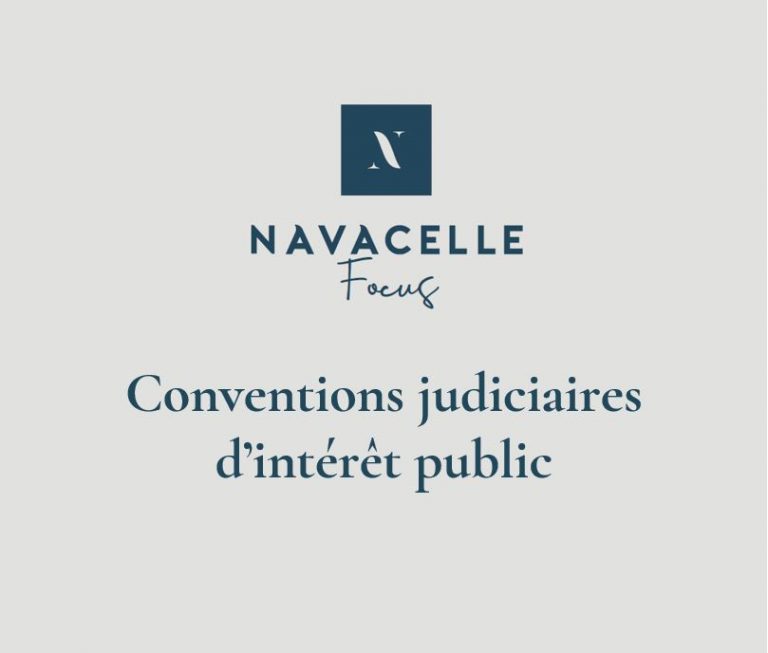Parliamentarians have been challenging the legitimacy of the tax administration’s (aka ‟Bercyˮ, the neighborhood where the building is) monopoly on tax fraud since 2012 but without much success so far1. Current debates before the National Assembly however could put in jeopardy such prerogatives and grant more power to the Judiciary.
A monopoly under criticism
• Bercy’s prerogatives in jeopardy
Under French law, the procedure for tax offenses derogates from the one defined in the Code of Criminal Procedure. Unlike ordinary criminal procedures, the Public Prosecutor may not initiate criminal proceedings2. To do so, the Public Prosecutor must obtain the approval of the French tax authorities, commonly referred to as “Bercy”, first3. Because this provision is of public order, the prosecutor may not bypass Bercy without fearing an annulment of the entire proceedings4.
With regard to tax fraud offenses, the executive branch has a hold on the procedure. To decide whether the case should be prosecuted, the Ministry of Budget must refer the case to the Committee on Tax Offenses (known as CIF)5. CIF will then look at the facts and will issue a favorable or unfavorable opinion as to the opening of criminal proceedings6. If CIF issues a favorable opinion, the Minister will have no other choice than filing a complaint7.
As this monopoly might limit the prosecution of tax fraud cases, many unions and non-profit organizations asked for its suppression during the parliamentary debates on a bill aiming at reforming public finances and improving transparency8. In January 2018, the parliamentary Commission of Finance mandated an Investigation Committee (mission d’information) to determine whether it was necessary to put an end to this monopoly9.
• A heavy flow of criticisms
Interviewed by the Investigation Committee, members of the judiciary heavily criticized Bercy’s monopoly. The Head of the National Financial Prosecutor (PNF), Ms. Eliane Houlette, even stated that this monopoly infringes the constitutional principle which allows the prosecutor office to freely press charges against an individual10. Furthermore, this distinctive feature would paralyze the entire criminal proceedings.
Indeed, out of 50,000 tax fraud cases, the CIF only reviews approximately 1,000 files: 95% of these files will receive a favorable opinion and 93% will be prosecuted11. In other words, only 883 cases out of 50,000 will be brought before a judge. For some magistrates, this situation is even more frustrating as the executive does not review suspicious case submitted by the prosecutor office12.
Although some members of the judiciary do recognize that this monopoly is a way to address tax fraud issues in a fair and equal manner, the decision-making process should be more transparent and give more leeway to prosecutors13. In its last annual report, the Cour des Comptes14 criticized the lack of transparency in tax transactions15. Despite criticisms, the executive has fiercely defended its prerogatives before the Investigation Committee.
The French tax administration seeks to tighten its grip on tax fraud prosecutions
• Bercy’s monopoly: an effective anti-tax fraud mechanism?
After hearing members of the judiciary, the Investigation Committee gave the floor to members of the tax administration. After reaffirming that the executive and the judiciary do work hands in hands, Bruno Parent, General Director of the Public Finances, answered the criticisms uttered by Ms. Houlette. For Mr. Parent, the tax administration cooperates fully with the judiciary16. He then reminded the Committee that CIF was composed of magistrates and individuals appointed by the Parliament17.
If the executive recognized that only a small number of tax fraud cases are brought to the Prosecutor Office, Bercy does not forget the 98% of tax fraud cases remaining18. Indeed, aware that the judiciary does not have the resources to prosecute each tax fraud case, the tax administration would rather issue penalties instead. Thus, the tax administration issued 15,065 tax penalties last year19.
Furthermore, the executive’s anti-tax fraud policy does not aim at prosecuting, but rather at deterring. Therefore, only recidivists should face judicial prosecution20.
By suppressing Bercy’s monopoly, the executive fears it would end the open dialogue between taxpayer and the tax administration. Fearing heavy sanctions, taxpayers would not cooperate fully to regularize their situation, thus rendering anti-tax fraud policies even more ineffective21.
• A better cooperation for a more effective anti-tax fraud policies
After hearing both arguments and be informed by the current government that it was against a full suppression of Bercy’s monopoly, the Committee issued an advisory opinion on whether Bercy’s monopoly should be suppressed. Although the Committee did not provide a clear answer, it issued recommendations aiming at reducing the opacity surrounding the tax administration and improving the judicial efficiency with regard to tax fraud prosecution22. The Bercy’s monopoly is so maintained but should lean towards more transparency.
Even though, there is an impossibility to prosecute all tax fraud cases, the Committee recommended to grant more power to judges23. The judiciary should go beyond the instructions given by Bercy. Thus, if the defender committed additional or previous tax fraud offenses, the PNF should be able to include such offense in its complaint24. The judiciary should also have jurisdiction on tax fraud offenses when the latter are correlative of other offenses25.
In its recommendation, the Committee however did not take a stand in favor of one or the other party. The report advocates for a more effective cooperation between Bercy and the PNF. If the prosecutors should forward more tax fraud cases to the tax administration, Bercy should also ensure appropriate follow-up to these cases26.
During the review phase, tax administration officials and prosecutors would work together to decide which case should be brought before a judge. Such provision however would reduce CIF’ scope of action27. As an alternative solution, CIF would review cases which meet the requirements set by the law (and not by Bercy), and would issue an advisory opinion28. Then, the prosecutor office would have a full autonomy to decide whether the case should be brought before a judge29. Therefore, if all the recommendations are adopted by the Parliament during the next session, the judiciary will gain new prerogatives undermining Bercy’s.
* * *
The monopoly of tax administration on tax fraud cases is a distinctive feature of the French system. The judiciary, and members of the civil society however heavily criticized such monopoly as it leads to opaque practices and impunity. Bercy explained that this practice aims at deterring and obtaining tax penalties not at prosecuting. Despite Bercy’s strong arguments to conserve its monopoly undisturbed, the Committee issued many recommendations aiming at implementing a better cooperation between the judiciary and the executive and reinforcing prosecutors’ prerogatives. Bercy still has chance to keep its monopoly as the Parliament must vote in disfavor of these recommendations.














